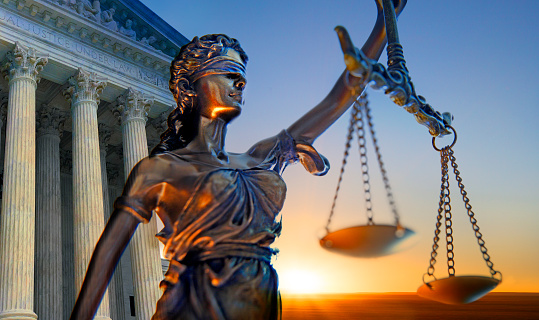
Justice is doing that which is ‘right’ and most of the time this is guided by our conscience as human beings. The definition of justice is based on ethics, rationality, equity and fairness.
Most communities perceive justice as doing that which is right, but its application is what differs from one community to the other.
Early theories of justice were founded by Greek philosophers like Plato and Aristotle. These philosophers attempted to define justice by using different theories.
One of the theories is the divine command theory that says justice is a divine command from God. This theory states that God must be obeyed because he himself is goodness and thus what he says would be best for everyone. In short, God commands morality and his authoritative order should be obeyed.
The other theory is the Natural law theory that states justice involves the nature of man. This emphasizes the reasoning of mankind. All people have inherent rights, not conferred by an act of legislation but by God, nature or reason. In this theory human beings have intrinsic values that can be applied independent of enacted laws of society. Other philosophers argue that justice is derived from mutual agreement of everyone in relation to equality and absence of bias.
Utilitarian thinkers state that justice is based on the standards of rightness and consequentialism. This means that what is right has the best consequences. Thus, the principle of justice is those that tend to have proper consequences. Therefore, any act that will generate positive consequences is Just. This begs the question: are our criminal justice systems churning out justice that has positive consequences to those involved?
Most of these theories contribute to our understanding of justice in modern times. As a matter of fact, the Universal Declaration of Human rights has borrowed most of its work from the theories of justice.
In a nutshell, justice is practising that which is right by treating everyone fairly and equally. Although everyone deserves justice, it doesn’t mean justice for one is necessarily justice for the other person, hence the need for ensuring fairness, equality and dialogue to achieve justice, a win-win situation for those involved.

